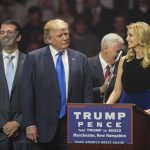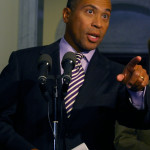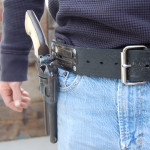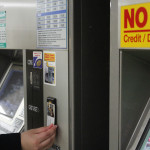[mediagrid cat=”20683″]
Hundreds gathered at the intersection of Ruggles Street and Tremont Street Wednesday to support the protests in Baltimore following the death of Freddie Gray, an African-American man who died on April 19 as the result of injuries he sustained while in the custody of Baltimore police.
Mass Action Against Police Brutality organized the rally, which featured several speakers, including Wayne Dozier, who said his grandson DJ Henry, a Pace University football player, was shot and killed by a police office four years ago.
Dozier spoke in front of the crowd and told his story about the pain that comes from losing a loved one to brutality. Dozier said he was grateful for the crowd’s support and the ability to speak about the issue of police brutality.
“It’s been noted that it’s not a black thing. It’s a society thing. We’ve got to change society,” Dozier said. “It takes everybody here to get together [and] push the vision for freedom without feeling intimidated because of the color of your skin.”
The crowd showed support by clapping and cheering as speakers stood up to tell their stories. Some held signs above their heads reading, “Justice for Freddie Gray,” while others chanted, “No justice, no peace, no racist police.”
Brock Satter, an organizer of the event from Mass Action Against Police Brutality, said the rally was not intended to be violent or confrontational.
“We are going to take the streets, and we’re going to march,” Satter said to the crowd. “We are not trying to get into a confrontation with the police today. We’re not trying to disrupt traffic, but we will take the streets. I’m not saying that it’s not ever necessary, but today, it isn’t necessary. We need to organize, we need to reach out, [and] we don’t just need hundreds. We need millions.”
Satter said Mass Action plans to organize further demonstrations in the future.
“We need people in the streets. We need the masses. That’s what mass action is all about, action against police brutality,” he said to the crowd. “That’s the type of movement we think is needed, and that’s why we’re having this event, because it’s not going to be solved tonight, and we can’t solve all the problems in Baltimore here in Boston, but together, we can be part of the solution.”
Bishop Filipe Teixeira, founder and member of the Franciscan Order of Saint Joseph Cupertino, addressed the crowd about facing the truth of police brutality.
“I have seen so many young men and women being killed by the cops,” Teixiera said. “This is real. It’s about life. Our lives matter, black and brown people. We need to tell the truth about what’s going on today. We have numbers, [and] we have people.”
Following the speeches, the attendees and organizers marched down Tremont Street toward Dudley Square. Nearly all attendees participated in the march, followed closely by police officers.
Several attendees expressed their distress surrounding police violence in Baltimore and around the country.
Sarah O’Connor, 24, of Somerville, said she felt the turnout was representative of a united community.
“It’s been a great show of people and an inspiring show of unity,” she said. “It’s important for Boston to show that we are with Baltimore, and that we support their struggle.”
Mario Nelson, 37, of the North End, said he chose to come to the rally to support the idea of asking for more information about the Freddie Gray incident.
“A lot of times, when you have instances like you’ve had down in Baltimore and Ferguson, they’re kind of few and far between,” she said. “There’s been little sparks of people trying to come together. But something like this, when it was just overwhelmingly blatant that something happened [and] there’s a cover-up for it, people need to kind of band together and figure out what’s going on.”
Greg Williams, 65, of Jamaica Plain, who has been involved with People’s Campaign for the Constitution since 1968, said he finally wants to see an end to violence.
“I have seen too many people die in many, many decades and it has to stop,” Williams said, “so you need some of us older [people] and a lot of young ones to make the change.”
Williams classified the event as both a rally and a protest.
“It’s in solidarity with what’s happening in Baltimore and around the country,” he said. “If people don’t turn up in these places, then they’ll just say ‘Oh, it’s just in Baltimore,’ but it’s everywhere.”
Meron Makonnen, 24, of Brighton, said she feels troubled that no one around her seems to care about what is happening in the world unless it has a personal effect on them.
“It hurts me so bad that no one will talk about an issue until they hear that a baseball game was affected,” she said. “Nobody cares until it affects them, and then everyone wants to sit here and criticize a whole oppressed people’s response to something, when no one paid attention when these people were protesting peacefully for days and days and days. No one cared. No one paid them any mind.”
Makonnen described how distressing it is that she feels uncomfortable discussing such important issues, even at her workplace.
“I’m tired of all the oppression that goes on in this country that everybody tries to ignore,” she said. “I’m tired of working in a corporate America environment and no one says anything. It makes me so sick to my stomach that I can’t talk and educate people anymore.”




